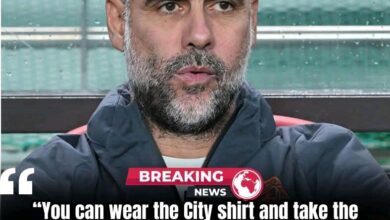Elon Musk used by Newcastle United’s takeover kingpin to attack Premier League rules

Newcastle United finds itself at the center of an ongoing debate about financial regulations in the Premier League, with sports lawyer Nick de Marco KC arguing that the club should be allowed to invest more money to compete with elite teams.
The fundamental issue lies in the current Financial Fair Play (FFP) and Profitability and Sustainability Rules (PSR) that significantly limit the club’s spending potential. Despite being owned by investors with a staggering net worth of £730 billion, Newcastle United faces strict financial constraints that prevent them from fully leveraging their financial might.
The Premier League’s current regulations mandate that clubs cannot exceed £105 million in losses over a three-year period. Failure to comply could result in severe penalties, including potential points deductions – a threat Newcastle narrowly avoided in June 2024.
To meet these stringent requirements, the club was forced to make strategic financial decisions, including the sale of players Elliot Anderson and Yankuba Minteh to balance their books. This situation highlights the challenging financial landscape that Newcastle United must navigate.
The club’s recent history provides context to their financial ambitions. Following the controversial takeover, Newcastle initially spent aggressively to establish themselves in the Premier League. Their strategy proved successful, with manager Eddie Howe guiding the team to their first Champions League qualification in nearly two decades.
Nick de Marco KC has become a vocal advocate for the club’s financial positioning. He believes the current regulations unfairly restrict Newcastle’s ability to compete with established elite clubs. The argument centers on the disparity between the club’s potential financial resources and the limitations imposed by league regulations.
The frustration is palpable among Newcastle’s management and supporters. While the club boasts owners with unprecedented financial resources, they remain handcuffed by regulations designed to maintain financial fairness across the league.
This situation raises broader questions about the nature of financial regulations in modern football. How can smaller clubs compete with traditional powerhouses? Is it fair to restrict clubs with significant financial backing from fully utilizing their resources?
Newcastle United’s case is particularly interesting because their ownership represents a new paradigm in football financing. The club’s Saudi-backed ownership group brings unprecedented wealth to the Premier League, challenging existing financial models.
The current FFP/PSR rules were originally designed to prevent clubs from spending beyond their means and to promote financial sustainability. However, critics argue that these regulations now serve to protect established elite clubs, preventing ambitious teams like Newcastle from truly competing at the highest level.
The club’s strategy has been nuanced. Rather than attempting to circumvent regulations, they’ve worked within the system – making strategic player sales and carefully managing their financial exposure. This approach demonstrates a commitment to responsible financial management while still pursuing sporting excellence.
Looking ahead, the debate is likely to intensify. Newcastle United represents a test case for the Premier League’s financial regulations. Their situation could potentially lead to future reforms in how club finances are managed and regulated.
For now, Newcastle continues to operate within these constraints, balancing their sporting ambitions with financial prudence. The club’s leadership remains committed to building a competitive team while respecting the league’s financial guidelines.
The coming months and years will be crucial in determining whether Newcastle United can break through the financial barriers currently limiting their potential. Supporters remain hopeful that their club will find a way to fully realize its remarkable potential.















